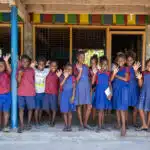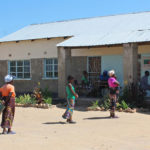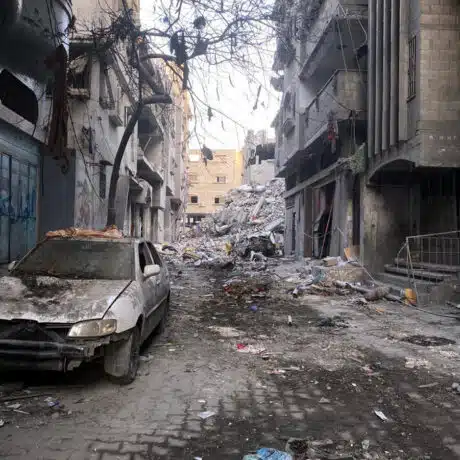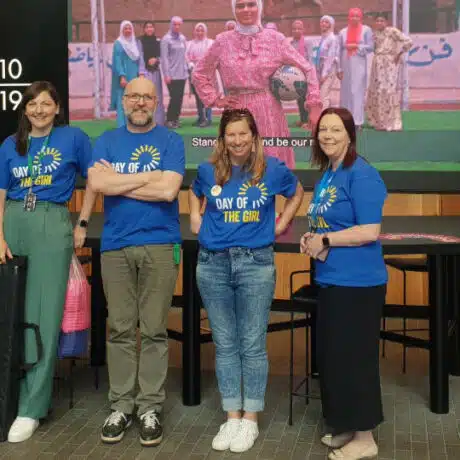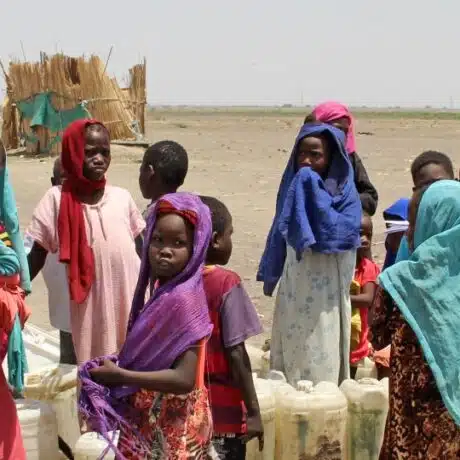News and Stories - Appeal - 6 April 2020
Tackling COVID-19: Lessons learned from Ebola
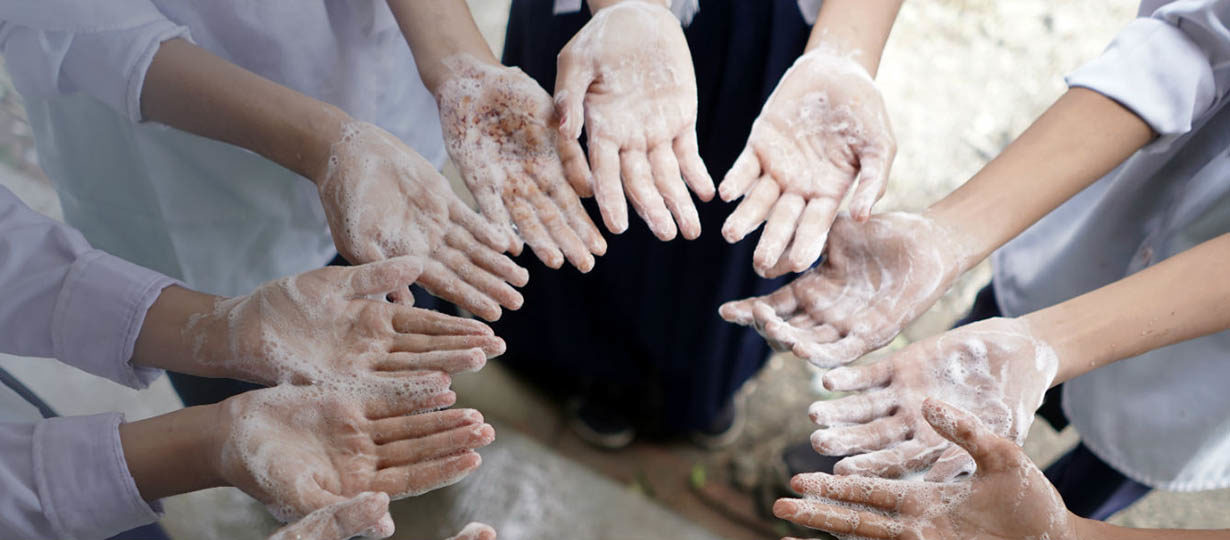
In a matter of months, the COVID-19 pandemic has had an unprecedented impact on life as we know it, across the globe. It’s been named the worst health crisis of a generation and caused more deaths than the entire Ebola epidemic. But in reflecting on Plan International’s 2014 Ebola response in West Africa, we can uncover insights and lessons, to ensure we’re responding to this global crisis in the most effective way we can.
Here in Australia, the year began with our worst fire season on record. Our precious wildlife was decimated, and thousands of Australians were directly impacted, losing homes, livelihoods and in some cases, loved ones.
And now, four months into 2020, we’re faced with a crisis on a scale that few of us have experienced in our lifetimes – but this time, we’re not alone.
As the COVID-19 pandemic unfolds across the globe, people living in lower-income countries with fragile health systems are especially at risk. If the pandemic escalates in these locations, the consequences could be catastrophic.
That’s why Plan International is working to support and protect the most vulnerable children and communities around the world, including girls, who face an increased risk of rights violations in times of crisis.
Damien Queally, the Executive Director of Global Programme Operations was part of Plan International’s Ebola response in 2014, and here he reflects on his time in West Africa and shares insights from that experience that will be essential in responding to the current pandemic.
Phase One: Prevention and Partnership
The Ebola death rate was high, much higher than COVID-19, so prevention was vital as phase one. Liaising with local authorities and partners would be key. Plan International supported health authorities who had very few resources, particularly in the communities where we worked.
We provided funds for essential aspects of the response – health messaging, health centre infrastructure to isolate those with symptoms, rehydration supplies, water and food for patients and healthcare staff. We also erected hand washing stations at local markets, schools, and other community gathering spots.
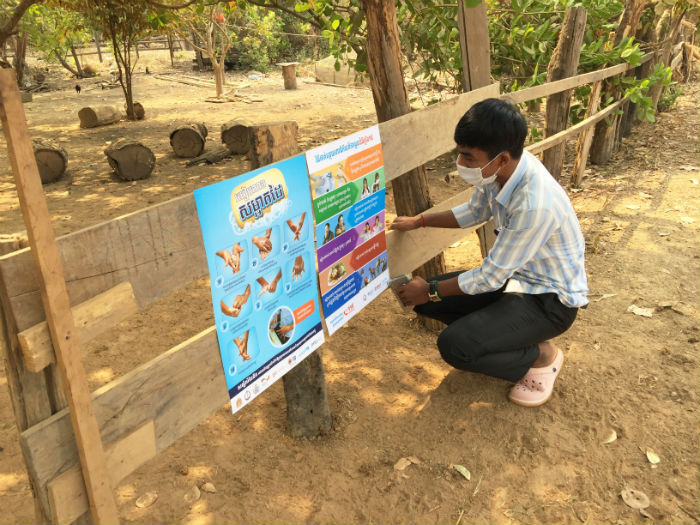
Community and Childcare
Next, we worked to set up community care centres. These were necessary to ensure Ebola victims weren’t flooding ordinary health centres and putting others at risk. They needed to be isolated, but in a safe space where health workers could triage, test and check symptoms.
Plan International also supported children affected by the crisis – newly orphaned children and those stigmatised because a parent or sibling had Ebola. This was a particularly traumatising time for children: seeing loved ones die and being isolated without the necessary support to care for them.
Children were out of school, had less access to food and any form of normality needed to feel secure. We provided food, care and safe spaces, and worked to reunite children with family or other appropriate carers while the crisis unfolded.
The treatment for Ebola is different to what is needed for COVID-19. But one aspect of it is the same. Hygiene. In both cases, community messaging is desperately needed, especially handwashing. It sounds simple, but there are all sorts of considerations: reminding people to use paper towels rather than material ones, ensuring that the taps can be turned off using an elbow rather than hands. And in both cases, if you have symptoms, you must isolate.
During the Ebola outbreak, isolation was one of the things families struggled with most. In the worst affected countries: Sierra Leone, Guinea and Liberia, isolation has a severe financial impact. While governments in the global north may now be pledging support packages for workers impacted by COVID-19, that wasn’t the case in West Africa. Livelihoods depended on people being able to sell their goods face-to-face at market. If the markets suddenly closed, they had no safety nets.
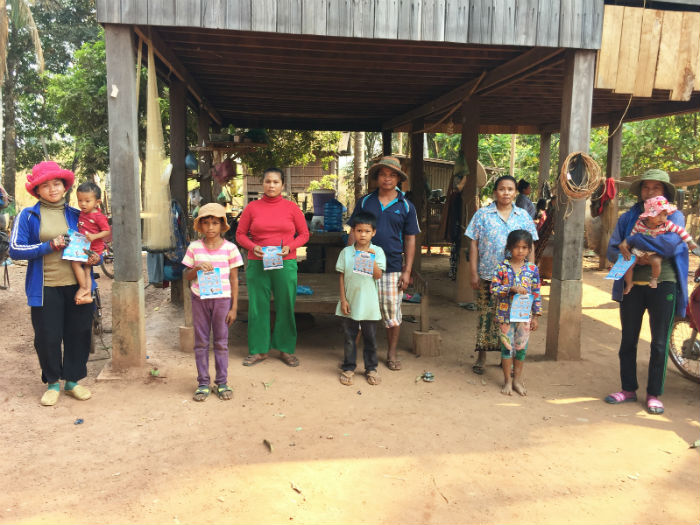
Knock-on effects on girls and young women
Plan International volunteers distribute hygiene kits in Azraq refugee camp, Jordan.
The virus had knock-on effects in other areas of health too. Malaria is one of Africa’s biggest killers. During Ebola people either attempted to self-treat at home or just didn’t get treated. Girls and young women were particularly hard hit, as essential resources were diverted away from routine care such as pregnancy or sexual health.
Families under financial pressure were also increasingly likely to resort to forced or early marriage. Familial strain heightened the risk of sexual or gender-based violence in the home, and there was in an increase in survival sex.
The impacts of COVID-19 will be felt far beyond the virus. We must recognise that young women and girls are the ones who suffer most in emergencies. They bear the brunt of the secondary impacts of the outbreak. The loss of already precarious health services, community cohesion and basic needs such as food will have devastating effects. We saw this with the Ebola crisis.
Communities need tangible assistance. Families without safety nets need cash transfers, and supplies.
Lessons from the Ebola Crisis
We learnt from the Ebola crisis the importance of tight crowd management, of ensuring that temperatures are checked, and that regular hand washing is practised. We realised that we would need to increase the number of distribution points, so people could maintain social distance.
In refugee or displacement camps, further consideration has to be given to how families unable to practice social distancing can maintain strong hygiene protocols. More sanitation measures must be put in place. This all requires a huge amount of coordination with local authorities and other partners.
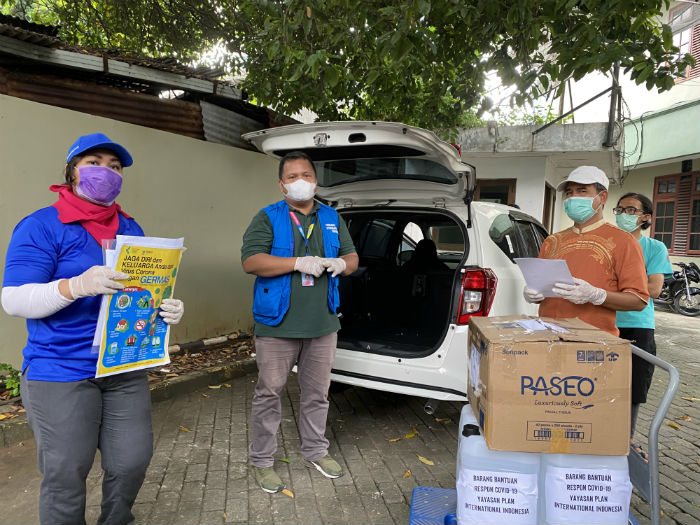
Our COVID-19 Response
Plan International, like many other aid agencies, is responding by providing vital public health messaging, hygiene supplies, supporting health infrastructure, and by raising awareness of the increased risks to children, especially girls and influencing response strategies to address these. We are creating space so the voices of young women can be heard, and adapting our existing development programming to best support young women and girls dealing with COVID-19.
The UN has announced a $2 billion COVID-19 Global Humanitarian Response Plan. Some governments, including Canada and Norway, have already pledged to increase overseas aid. Other countries must do the same. But this is still not enough. If we are to defeat COVID-19, we need global solidarity.
This virus is universal, it does not respect borders. Europe and North America are the current epicentres. Governments, donors and other businesses are understandably concerned with tackling the virus in their own countries. But we have seen how quickly it escalates, and while COVID-19 remains prevalent in any part of the world, none of us are safe.
This crisis has shed light on the common thread by which we are all connected – our humanity – and In addition to supporting our own family members, friends and local community at this time, there has never been a greater need to support those most vulnerable in our global community.
Please consider donating today to provide vulnerable communities around the world with hygiene kits, access to clean water, hand-washing promotion and public health information, as well as food, learning materials and child protection, to keep them safe from additional threats.
Your donation will help make sure children are safe in their homes and communities, even in an emergency like this one.
Donate to our COVID-19 emergency appeal now.

